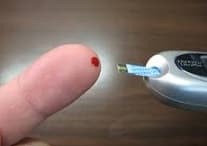In order to know the meaning of the term glucose, it is necessary, first of all, to discover its etymological origin. In this case, we can say that it is a word that derives from Greek and that was formed from the sum of two lexical components of said language:
-The noun "gleukos", which can be translated as "sweet wine."
-The suffix "-ose", which is used in chemistry to give the name to what sugars are.
Likewise, it is important to know that glucose is a neologism that was shaped by the French scientist Jean Baptiste Dumas (1800 – 1884). However, it should be noted that the rest of his colleagues from the Academy of Sciences also played an essential role in this designation, among whom were chemists of the stature of Jean Baptiste Biot or Gay Lusac, among others.
This is the name given to a sugar found in various fruits.
 A sugar is a substance that is part of the group of carbohydrates , also called carbohydrates or carbohydrates . Because it is a sugar whose decomposition into a simpler sugar through hydrolysis is not possible, glucose is a monosaccharide . On the other hand, since it has six carbon atoms and has an aldehyde functional group, it is an aldohexose .
A sugar is a substance that is part of the group of carbohydrates , also called carbohydrates or carbohydrates . Because it is a sugar whose decomposition into a simpler sugar through hydrolysis is not possible, glucose is a monosaccharide . On the other hand, since it has six carbon atoms and has an aldehyde functional group, it is an aldohexose .
Glucose, in short, is a sugar, a monosaccharide and an aldohexose. This substance, white in color and sweet in taste, is soluble in water .
Through the oxidation of glucose, various compounds are produced that provide energy . Therefore, when we eat foods with glucose, the body absorbs the sugar and transforms it into energy thanks to metabolic activity.
While plants can synthesize glucose through photosynthesis , animals and humans must obtain glucose from other living beings or synthesize it from other organic compounds. It is important to mention that glucose, whether combined or free, is the organic compound found in greatest abundance in nature.
According to the amount of sugar present in the body, the level of sugar in the blood (known as glycemia ) is determined. There is a normal blood sugar level: deviations from these values may reveal the presence of diabetes or other disorders.
In order to maintain adequate blood glucose levels, the body uses two hormones that are produced by the pancreas, such as glucagon and insulin.
Sometimes, there are people who suffer what is known as a drop in glucose, for example after having done significant physical activity. In that case, they will know that they are suffering from this situation because they will have symptoms such as paleness, palpitations, irritability, tingling in the hands, tremors, excessive sweating... What's more, they may even have drowsiness, blurred vision, headache or confusion.
In that case, what you should do is eat or drink something that contains sugar and wait ten minutes for that element to act. The usual thing is that the person recovers, if not, they will have to go to a medical center.
